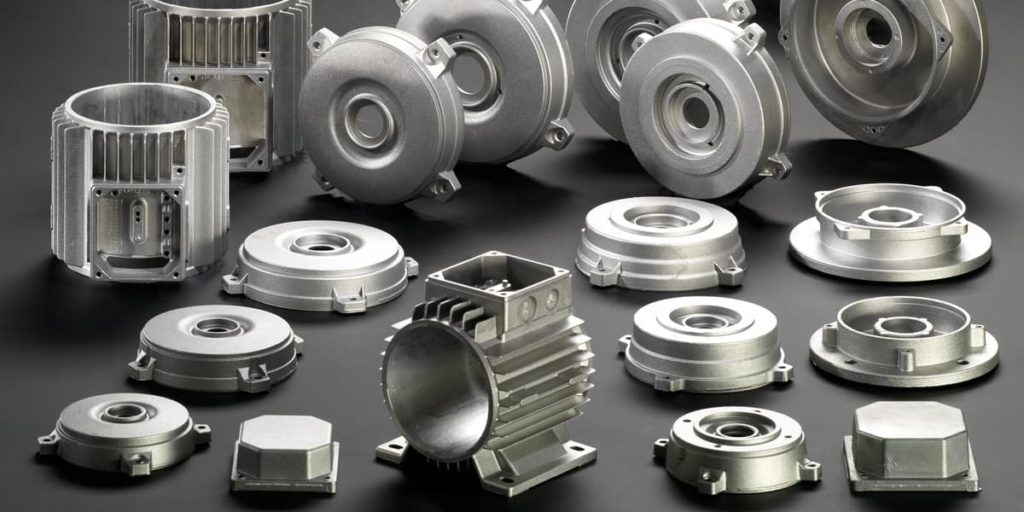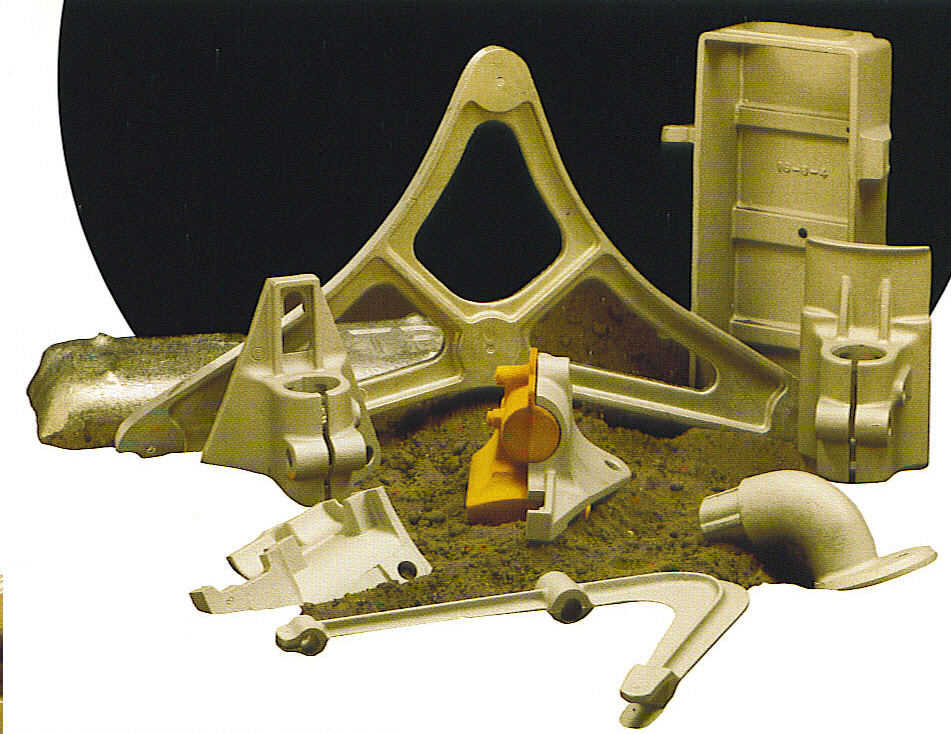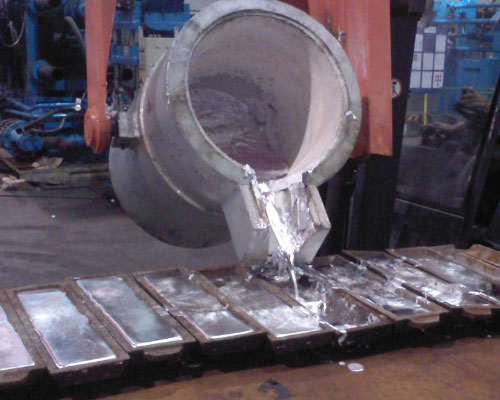The Important Uses Aluminum Foundry in Numerous Industries and Their Impact
Aluminum factories function as a vital source within countless markets. Their light-weight and durable materials considerably boost efficiency in auto, aerospace, construction, and electronics markets. As each market leverages aluminum's distinct residential properties, they additionally contribute to sustainability initiatives. This complex impact triggers a deeper exploration of exactly how Aluminum shaped these sectors. What specific innovations and advantages develop from its usage?
Automotive Sector Applications
The auto industry progressively depends on Aluminum Foundry applications to enhance vehicle efficiency and effectiveness. Light weight aluminum's lightweight nature adds greatly to sustain economy, making it a recommended selection for makers aiming to minimize emissions and enhance general automobile dynamics. Elements such as engine blocks, transmission housings, and wheels are commonly produced via Aluminum casting procedures, enabling complex styles that meet rigorous security and performance criteria.

Aerospace Innovations

The use of aerospace-grade Aluminum alloys enhances resistance to corrosion and fatigue, vital for the requiring atmospheres aircraft face. Technologies in additive production likewise enable rapid prototyping and modification of parts, decreasing lead times and expenses.
Construction and Infrastructure
While the building and construction and infrastructure industries remain to advance, Aluminum factories are significantly identified for their contributions to modern-day structure techniques. Aluminum's lightweight nature and high stamina make it a perfect product for different architectural applications. Shops provide parts such as beams, structures, and facades that improve the sturdiness and longevity of buildings and framework projects.
Additionally, light weight aluminum's deterioration resistance plays an essential function in prolonging the life expectancy of structures subjected to harsh ecological problems. The energy effectiveness of Aluminum products likewise aligns with sustainable structure campaigns, adding to reduced energy intake in building and construction. Additionally, ingenious spreading strategies have actually broadened the style opportunities, allowing designers and designers to develop aesthetically pleasing yet functional structures.
Electronics Manufacturing
Aluminum foundries play a significant function in the electronics making industry, where the demand for thermally conductive and lightweight materials is paramount. Aluminum Castings. Components such as warmth sinks, housings, and braces are frequently generated using Aluminum as a result of its exceptional thermal properties and ability to dissipate heat efficiently. This is important in electronic gadgets, where overheating can bring about failure and lowered performance
The versatility of Aluminum allows for intricate designs and specific machining, which are important in modern electronics. Furthermore, aluminum's non-magnetic properties make it suitable for applications in delicate electronic tools, decreasing disturbance. Light weight aluminum's resistance to deterioration improves the durability of digital parts, ensuring long life and integrity.
Sustainability and Recycling Initiatives
Provided the increasing emphasis on environmental obligation, the Aluminum Foundry market has actually made significant strides in sustainability and reusing initiatives. Aluminum is naturally recyclable, permitting shops to recover and recycle material with minimal energy expense contrasted to key production. This closed-loop recycling process not just lowers waste yet additionally decreases greenhouse gas exhausts, contributing to a more lasting production design.
Moreover, many shops are embracing energy-efficient innovations, including renewable resource sources, to power their operations (Aluminum Foundry). This change not only reduces dependence on fossil gas but also improves general functional performance
Sector collaborations are additional advertising sustainable techniques, such as sharing ideal techniques and developing innovative reusing approaches. By focusing on these initiatives, the Aluminum Foundry market is placing itself as a leader in lasting production, aligning with international targets for sustainability while meeting the needs of different sectors.

Frequently Asked Concerns
What Are the Primary Advantages of Utilizing Aluminum in Foundry Processes?
The key benefits of utilizing Aluminum in Foundry processes include its lightweight nature, exceptional deterioration resistance, high thermal and electric conductivity, and adaptability, enabling detailed styles and reliable recycling, ultimately boosting total manufacturing performance and reducing costs. - Aluminum Castings
Exactly How Does Aluminum Foundry Impact Product Lifecycle Administration?
Aluminum Foundry considerably enhances item lifecycle administration by enabling reliable material usage, reducing waste, and assisting in recycling. Its lightweight homes enhance transport performance, while sturdiness extends item lifespan, inevitably adding to sustainability and cost-effectiveness in manufacturing.
Exist Details Obstacles in Aluminum Foundry Manufacturing?
Particular obstacles in Aluminum Foundry manufacturing consist of managing temperature level control, making certain worldly quality, lessening waste, and adjusting to changing market needs. These elements can affect efficiency, expense, and general competition within the industry.
What Safety And Security Measures Are Necessary in Aluminum Foundry Workflow?
Necessary precaution in Aluminum Foundry procedures include individual protective tools, appropriate air flow, normal equipment upkeep, danger communication, and emergency situation feedback training. Implementing these methods warranties employee safety and lessens risks associated with high-temperature steel handling.
How Does the Cost of Aluminum Compare to Other Metals in Foundry Use?
The cost of Aluminum is typically lower than that of metals like copper and titanium, making it an affordable choice for lots of Foundry applications. This cost adds to its extensive use throughout numerous markets.
Aluminum foundries serve as a vital source within various markets. The automotive industry progressively relies on Aluminum Metal Castings Foundry applications to enhance vehicle efficiency and efficiency. The material's recyclability also lines up with the market's push in the direction of sustainability, as recycled Aluminum requires significantly much less power to procedure contrasted to key light weight aluminum. Aluminum foundries play a significant duty in the electronics manufacturing industry, where the demand for light-weight and thermally conductive products is extremely important. Provided the increasing focus on environmental responsibility, the Aluminum Foundry industry has made substantial strides in sustainability and reusing initiatives.